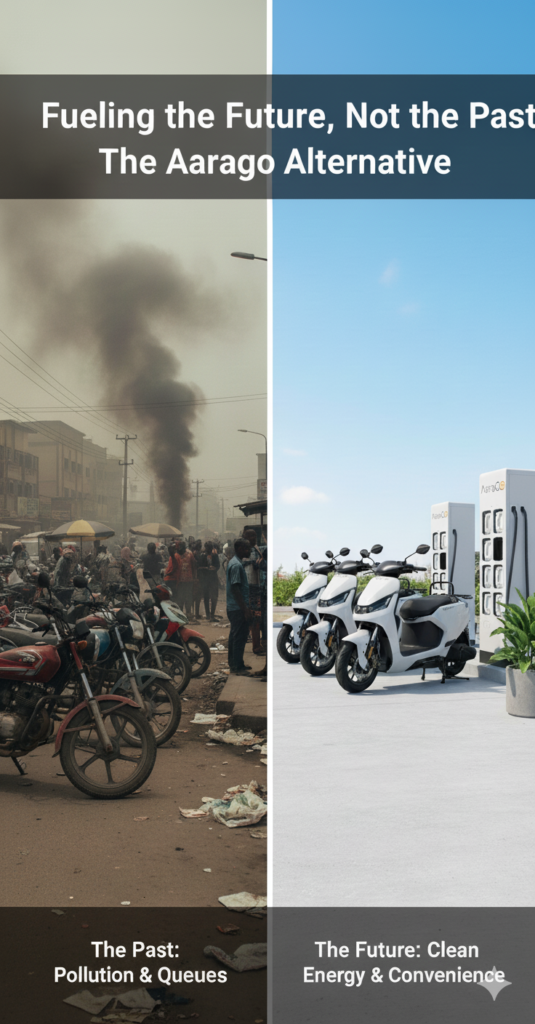
Nigeria’s dependence on petrol is bleeding the economy. In 2024, the country spent ₦15.42 trillion importing petrol, more than double the ₦7.51 trillion it spent in 2023. Even in the first half of 2025, another ₦4 trillion was spent on fuel. The removal of subsidies has already pushed imports down by 3.58 billion litres in the second half of 2023 compared to the first.
But the relief is deceptive. Although the landing cost dropped to about ₦774 per litre in early 2025, retail prices in Lagos and Abuja remain between ₦860 and ₦880 per litre. For riders, delivery operators, and everyday commuters, rising fuel costs eat into income. Long queues at stations waste time. Fuel volatility disrupts planning.
AaraGO offers a different path. With battery swapping, riders don’t wait for hours or battle price spikes. They swap their depleted battery for a charged one and continue their journey. AaraGO makes electric mobility not just possible but practical.
Benefits of Battery Swapping
- Speed & continuity: A swap takes about a minute, so downtime is minimal.
- Cost predictability: Riders move from volatile fuel costs to fixed subscription fees.
- Convenience & flexibility: No dependence on grid availability or long charging times.
Solving Three of Nigeria’s Toughest Problems
- Economic Drain from Fuel Imports
Every litre of petrol imported is money leaving Nigeria. In 2024 and early 2025 alone, trillions of naira flowed outwards. By replacing those litres with battery-powered rides via Aarago, we reduce import demand, retain value in the local economy, and shield riders from global oil shocks.
- Underemployment, Income Stress, and Youth Unemployment & Underemployment
Nigeria struggle with labour market pressures. In Q2 2023, the unemployment rate was 4.2%, and time-related underemployment stood at 11.8%; put together, 15.5% of the labour force was either unemployed or underemployed. In urban areas alone, unemployment was 5.9%. Many youths, especially between 15–24, face limited opportunities.
Aarago’s model gives riders a low barrier to entry, a predictable cost structure, and an income opportunity in sectors like delivery, logistics, and mobility services. It helps transform idle capacity into active livelihoods.
- Air Pollution & Public Health Toll
Nigeria’s pollution problem is severe. In 2017, air pollution was responsible for more than 114,000 deaths, over 7% of all deaths in the country. It is the 4th leading risk factor for mortality. In Lagos alone, an estimated 23,900 premature deaths in 2019 were linked to air pollution. Vehicles, industry, waste burning, and generator use all contribute.
Aarago’s battery swapping model replaces petrol-burning bikes with clean electric alternatives. Every ride on an Aarago bike means one less polluting engine on the road. Over time, this scales into cleaner air, fewer health complications, and fewer deaths.
AaraGO is not just another transport option. It is a response to real national challenges:
- It cuts the drain of petrol imports,
- It creates a more stable income for riders,
- It eases the burden of pollution on health systems.
If we lean into swapping, Nigeria doesn’t just switch transport modes; it reshapes its energy, employment, and health trajectory.
